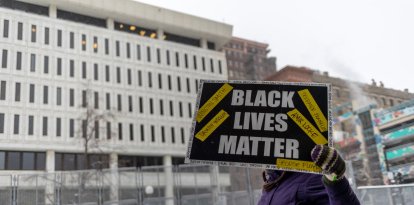The Abbott method? Iowa pushes for Texas copycat law against illegal immigration
The legislation, which has already been approved by the local legislature and awaits Kim Reynolds' signature, would make it a crime for an illegal immigrant to enter or re-enter the state if they have previously been deported.

Wikimedia Commons
Iowa is promoting a Texas-style law to combat illegal immigration. The legislation has already been approved by both the Senate and the local House of Representatives, so the only thing missing is the signature of Governor Kim Reynolds (R), who celebrated the bill, ensuring that "Americans deserve no less."
Steven Holt, a local Republican congressman, assured that the Hawkeye State must intervene in the crisis caused by the Biden Administration.
"We know that many have come across our border just to have a better life and escape the pain in their own countries. But we also know that there are gang members, terrorists, rapists, and those who commit murder that have also crossed our border," he said.
What does Iowa's bill do against illegal immigration?
Specifically, it makes it a crime for an illegal immigrant to enter or re-enter the state if they have previously been deported or denied entry to the United States.
"President Biden and his administration have failed to enforce our immigration laws and, in doing so, have compromised the sovereignty of our nation and the safety of its people. States have stepped in to secure the border, preventing illegal migrants from entering our country and protecting our citizens. Americans deserve nothing less," Reynolds said in an interview with the Des Moines Register.
The governor already announced that she would sign the legislation and that it would come into force as of July of this year.
Iowa is not the only state influenced by Texas' stance on immigration matters as New Hampshire, Tennessee, and Oklahoma have all begun to process similar texts.
Texas law
Known as SB4, it allows Texas law enforcement to detain and imprison illegal border crossers without requiring a federal permit. After being detained, immigrants could accept a state judge's order to leave the country or face a misdemeanor illegal entry charge. After receiving the expulsion order, those who do not leave the country could be arrested again and charged with a more serious crime.
Although the Supreme Court of Justice (SCOTUS) endorsed the legislation promoted by Abbott, they warned that the high court could reevaluate the Texas law in the absence of a decision in the Fifth Circuit.
Indeed, just hours after the announcement by the country's highest court, the Fifth Circuit Court of Appeals voted 2-1 in favor of blocking the legislation again.

























